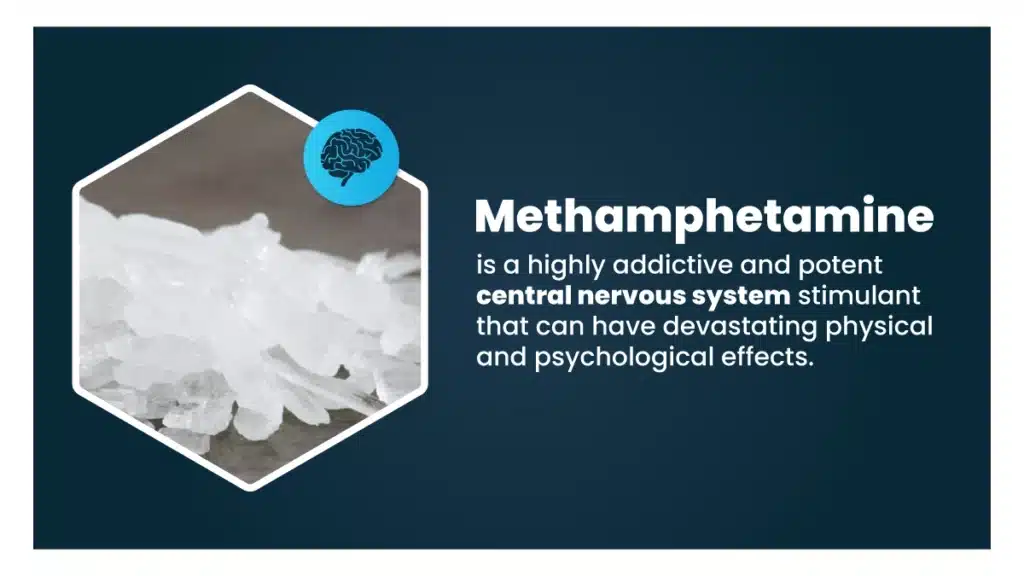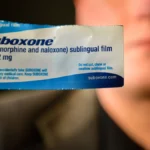Meth’s Impact On The Body: Euphoria To Desolation
Methamphetamine, often referred to as “meth,” is a powerful and highly addictive stimulant that wreaks havoc on the human body. This synthetic drug alters the central nervous system, leading to a range of devastating physical and psychological effects.
Understanding what meth does to the body is essential in raising awareness about its destructive impact and the importance of prevention and treatment.

Meth’s Impact On The Body: Euphoria To Desolation
Methamphetamine, often referred to as “meth,” is a powerful and highly addictive stimulant that wreaks havoc on the human body. This synthetic drug alters the central nervous system, leading to a range of devastating physical and psychological effects.
Understanding what meth does to the body is essential in raising awareness about its destructive impact and the importance of prevention and treatment.
Key Takeaways
Recovery from meth addiction is possible but often requires comprehensive treatment, including therapy, support groups, and medical intervention. Here’s what you need to know:
- Methamphetamine is a highly addictive and potent central nervous system stimulant that can have devastating physical and psychological effects.
- The production and use of meth often lead to severe health risks, criminal activity, and societal problems.
- Prevention, education, and access to treatment can help address the meth epidemic and help individuals break free from its grip.
In case you or your family member is dealing with meth dependence, contact The Haven Detox-Little Rock at (501) 271-3342 for more information and emotional support to embrace recovery.
Meth Explained
Methamphetamine, commonly known as “meth,” is a powerful synthetic central nervous system stimulant with high addictive potential. This illicit drug comes in crystalline powder form and is often referred to by street names such as “crystal,” “crystal meth,” “ice,” or “glass.”
Meth can be smoked, snorted, injected, or swallowed, and it has a profound impact on the mind and body.
Immediate Impact On The Body
The initial effects of meth use are striking and intense. People experience an immediate rush of euphoria, increased energy, and heightened alertness. This euphoria is driven by a surge of dopamine, a neurotransmitter associated with pleasure and reward. However, this initial high is short-lived, and people soon experience a “crash” phase characterized by irritability, anxiety, and fatigue. This cycle often leads to repeated meth use as individuals seek to recapture that initial intense high.
Physical Toll Of Chronic Meth Use
Chronic meth use inflicts a heavy toll on the body. People frequently deal with a list of withdrawal symptoms, including rapid weight loss, severe tooth decay (meth mouth), skin sores, and severe acne. Cardiovascular issues like increased heart rate, high blood pressure, and a greater risk of stroke are common among people.
Additionally, meth use affects the respiratory system, leading to lung damage and chronic respiratory conditions. These physical consequences can result in long-term health issues and significant deterioration in one’s overall well-being.
Psychological Impact Of Meth
The psychological impact of meth use is deeply concerning. People with chronic use of meth often experience paranoia, anxiety, difficulty in decision-making, hallucinations, hemorrhagic strokes, and delusions. Mood swings, violent behavior, and agitation are prevalent, often leading to violent and aggressive behavior.
Research suggests prolonged meth use can cause cognitive impairments, including memory and attention deficits, making it challenging for individuals to maintain employment and stable relationships. This cycle of addiction and its psychological effects can lead to social isolation and a severe negative impact on one’s overall quality of life.
How Meth Interacts with Different Body Systems
Methamphetamine often has damaging side effects on various body systems. Its interactions with these systems can have severe consequences for the health and well-being of individuals who use the drug.
Let’s explore how meth interacts with different body systems:
Central Nervous System
Methamphetamine has a powerful impact on the central nervous system (CNS). It increases the release and inhibits the reuptake of neurotransmitters like dopamine, norepinephrine, and serotonin, leading to intense euphoria, increased alertness, and energy.
However, chronic meth use can result in neurotoxicity, causing significant damage to dopamine-producing neurons and impairing cognitive functions. Individuals may experience anxiety, paranoia, and even psychosis.
Respiratory System
Meth can be smoked, snorted, or injected, and these routes of administration can have adverse effects on the respiratory system. Smoking meth damages lung tissue and can lead to chronic bronchitis and other respiratory issues.
Intravenous use can introduce contaminants and increase the risk of infections, including HIV and hepatitis, further straining the respiratory system.
Digestive System
Meth use can suppress appetite, leading to poor nutrition and significant weight loss. Chronic meth people often neglect their dietary needs, which can result in nutritional deficiencies and related health problems.
In addition, according to studies, meth can cause gastrointestinal issues, such as constipation, due to reduced blood flow to the intestines.
Cardiovascular System
Methamphetamine use significantly increases heart rate and blood pressure. These stimulant effects can put immense strain on the cardiovascular system, increasing the risk of heart attacks, arrhythmias, and strokes.
Long-term use can lead to structural and functional changes in the heart, potentially resulting in cardiomyopathy and other severe cardiovascular issues.
Social Consequences of Meth Use
Methamphetamine use has pervasive social consequences, ravaging communities and individuals alike. Its addictive nature often leads to strained relationships, alienation from family and friends, and disintegration of support networks.
Meth use can result in increased involvement in criminal activities, leading to incarceration, which further disrupts social connections and exacerbates stigmatization. The repercussions are not limited to the individual; they extend to families and communities, burdening social services and healthcare systems with the responsibility of addressing associated issues such as child neglect, unprotected sex, domestic violence, and mental health challenges.
The social fabric of affected regions suffers from heightened crime rates, reduced economic productivity, and a palpable sense of insecurity, illustrating the profound impact of meth use on society.
Recovery from Meth Addiction
Recovery from methamphetamine addiction can be challenging, but it is possible with the right support, determination, and resources.
Here are some steps and strategies to consider for recovery from meth use disorder:
Detoxification
Meth withdrawal can be intense and may include symptoms like fatigue, depression, anxiety, and strong cravings. Detoxification should be conducted under the supervision of medical professionals to manage these symptoms safely.
Inpatient or Outpatient Treatment
Depending on the severity of your mental illness, you may consider inpatient or outpatient treatment programs. Inpatient treatment involves living at a treatment facility, while outpatient treatment allows you to receive therapy and support while living at home.
Behavioral Therapy
Evidence-based therapies, such as cognitive-behavioral therapy (CBT) and contingency management, have been effective in treating the effects of substance abuse. These therapies help individuals develop coping strategies, identify triggers, and address underlying issues.
Support Groups
Joining support groups, like Narcotics Anonymous (NA) or Crystal Meth Anonymous (CMA), can provide you with a community of individuals who understand your struggles and offer support and encouragement to treat the long-term effects of addiction.
Lifestyle Changes
Replace old habits with new healthy ones to treat medical conditions. Physical activity, proper nutrition, and good sleep play an important role in recovery by improving your physical and mental well-being. Identify and avoid people, places, and situations that trigger addictive drug use. This may involve making significant changes to your lifestyle.
Frequently Asked Questions (FAQ)
What are the effects of methamphetamine on your body?
Methamphetamine use can lead to a range of harmful effects on the body, including increased heart rate, high blood pressure, reduced appetite, gum disease, blood clots, disturbed brain functions, anxiety, paranoia, and impaired cognitive function.
Chronic use can result in severe health issues, such as cardiovascular problems, organ damage, and addiction.
Why does meth cause me to not eat?
Methamphetamine, a stimulant drug, suppresses appetite by affecting the brain’s reward and pleasure centers. It increases the release of certain neurotransmitters, such as dopamine, which reduce the sensation of hunger and the enjoyment of food.
This can lead to significantly low energy levels, weight loss, a weakened immune system, and malnutrition among young adults.
In what ways does meth damage the brain permanently?
Methamphetamine abuse can cause permanent brain damage by damaging dopamine-producing neurons, leading to reduced dopamine levels. This affects mood, cognition, and impulse control.
Long-term meth use also causes confusion, memory loss, and attention and can result in mental health issues like anxiety, depression, and psychosis.
Recover Your Future: Join The Haven Detox-Little Rock
Say goodbye to the shadows of meth addiction with The Haven Detox-Little Rock.
We offer tailored detox and comprehensive residential treatment programs, providing a safe and supportive environment for your recovery journey. Our experienced therapists are dedicated to guiding you through the challenges, offering personalized care and support to ensure lasting change. Don’t wait for tomorrow; seize your chance for a fresh, addiction-free start today. Call (501) 271-3342 now and leap towards a healthier and happier you.




